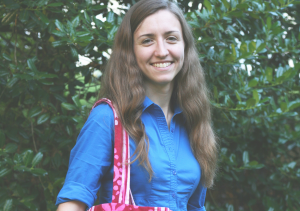By: Emily Rusk

Photo Credit: http://www.aban.org
When Callie Brauel and Rebecca Brandt stepped out of the airport in Arcca, Ghana, in 2008, they were shocked to see the number of small plastic bags that littered the streets. When these bags are filled with water, they are vital to the survival of the homeless people in Ghana. However, for a city that has no trashcans, the 40 tons of daily waste from the plastic bags adds up.
The two University of North Carolina-Chapel Hill (UNC) students were participating in a study abroad program and spent their time working with nonprofits in an attempt to help over 30,000 homeless and neglected children in Arcca. Brauel and Brandt did what they could to help the children during the day, but at night, when they were forced to retreat to their safe homes, the two students were powerless to help the needy.
This is where the idea for A Ban Against Neglect (ABAN) first began to form. Brauel and Brandt wanted to develop a way to empower people in Ghana and create a steady flow of income to solve the issue of poverty, rather than just temporarily resolve the problem.
The idea of ABAN began to flourish even more when Brauel and Brandt returned to UNC and consulted Business Professor Larry Chavis. Back on their own college campus they were able to recruit more students to help them develop their idea. It was here that they were able to add three more teammates. Diana Lee, Claire Corriher and Josh King joined Brauel and Brandt helping them make their plan for officially launching ABAN feasible.
It was in class where they fully designed the idea for ABAN. Their idea was to kill two birds with one stone, and tackle both the waste epidemic and the poverty epidemic in Ghana. ABAN teaches women in Ghana to create recycled products out of the plastic waste on the streets to sell in order to have a steady flow of income.
These women are trained by ABAN to create products like beads, jewelry, bags and purses. The products are then sold online, and the profits go back to the workers in Ghana and toward training more workers.

Brittany Darst is a full-time employee for A Ban Against Neglect. Photo Credit: Http://aban.org/about/our-team
Brittany Darst became the general donor relations manager after spending her senior year working in an internship for ABAN. She was drawn to ABAN after hearing about the work the company has done. She has now been a member of the ABAN team for almost two years.
She said, “The model focus is on empowering women. We provide them basic skills so they can sustain themselves, rather than just handing out cash. This creates a long-term solution for poverty for the women in Ghana rather than only temporarily delaying the problem.
“I love that I know my work directly impacts others and that I get to make a difference every day,” Darst continued. “At A Ban Against Neglect we do everything that we can to change the lives of the women and children in Ghana. We want to better the country as a whole by helping it to become more environmentally friendly while also helping to eliminate poverty.”
Through grants and fundraising efforts ABAN was able to get up and running, changing the lives of many women and children in Ghana. In 2010, ABAN won the Stedman Social Entrepreneurship Award at UNC’s annual business plan competition. This award gave the company $15,000, allowing them to expand even further.
What began as an idea from a few college students has now grown into a full nonprofit organization with 19 employees and three interns.
Service-learning projects like ABAN provide students with the opportunity to reach beyond classroom walls and to get involved in the community. They help students gain valuable skills that transfer over to real life scenarios, while helping them to better the community around them.
The opportunity for an idea in a college class to develop into a full nonprofit organization is what service learning is all about. ABAN took full advantage of this, and in doing so, they changed the lives of many people in Ghana.
